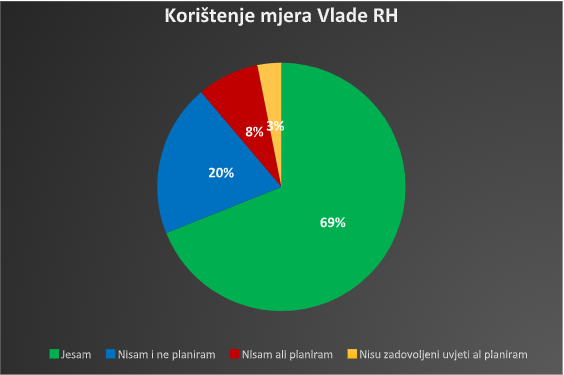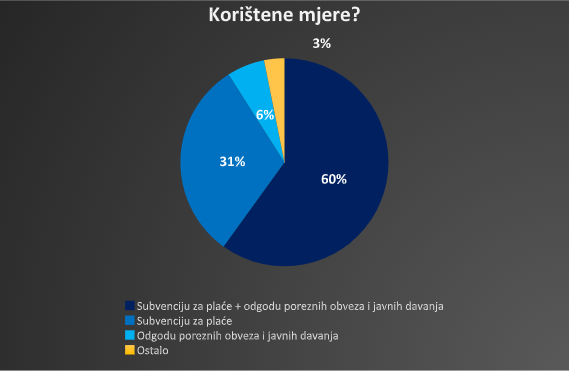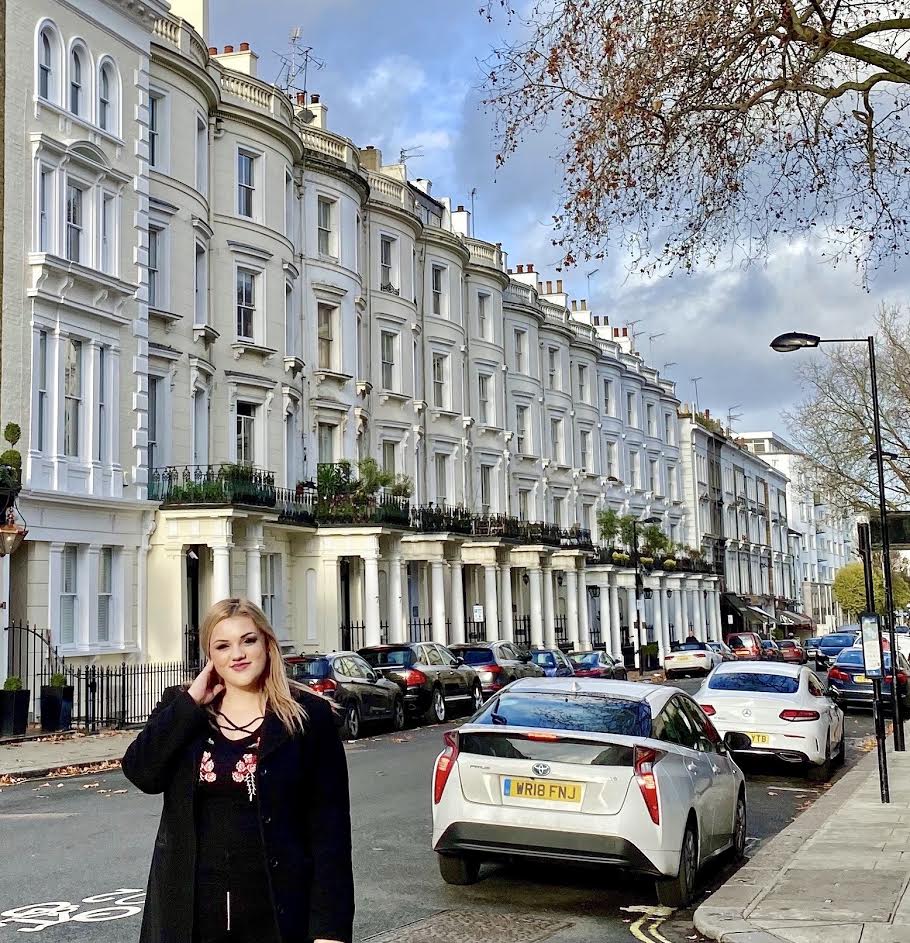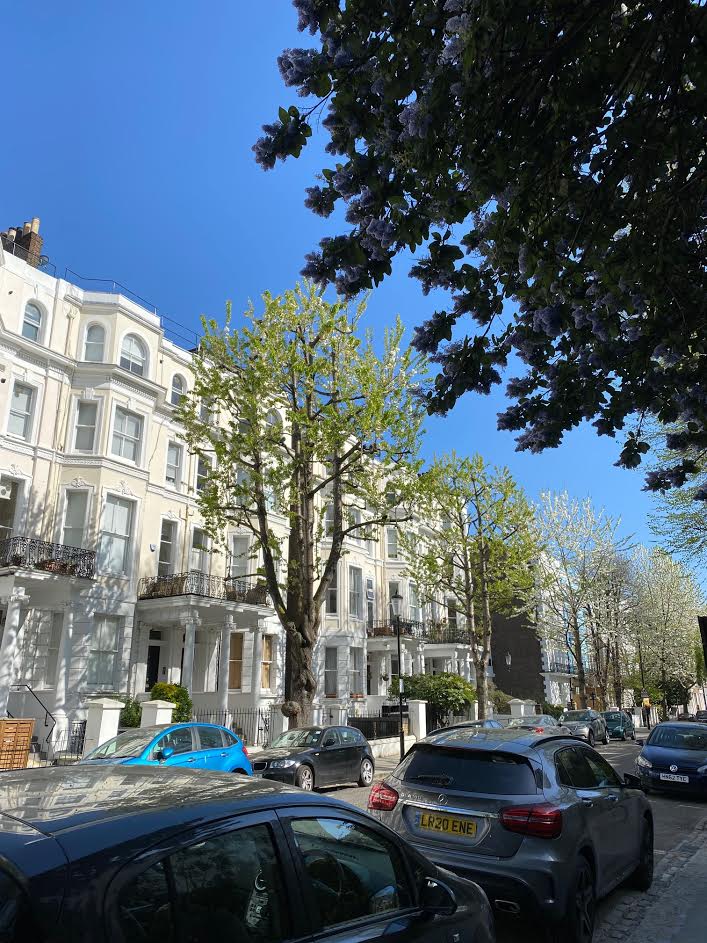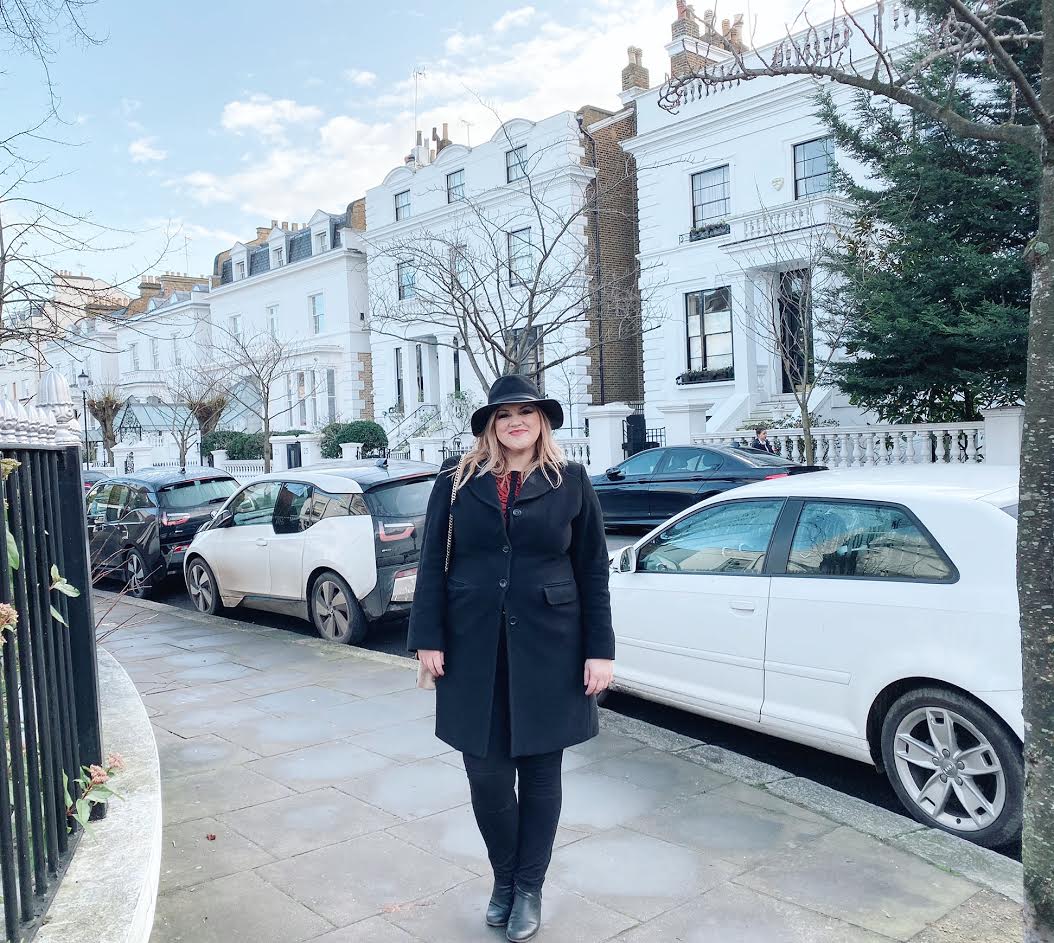Foreigners Self-Isolating in Croatia: Do You Feel Safer? Stefan from Ireland in Split
April 12, 2020 - Do foreigners in Croatia feel more or less safe sitting out COVID-19 here than in their home country, and what are their experiences? A new series on Total Croatia News, with Dr. Stefan Gillow Reynolds from UK/Ireland in Split as the 37th contributor.
Oxford University recently published some research on government responses to coronavirus which showed that Croatia currently has the strictest measures in the world. While inconvenient, this is a good thing in terms of reducing the spread of the virus, and I am certainly not alone in my admiration of the official Croatian handling of this crisis in recent weeks, both in terms of action and communication.
But what do other expats here think? And how does it compare with the response in their home country? Would they rather sit this one out here or there? A new series on TCN, we will be featuring expats from all over the world to see what their views are on life in corona Croatia rather than back home. So far we have heard from expats in Croatia from Romania, USA, Ireland, UK, Mexico, Argentina, Spain, Singapore, Holland, Canada, India, Hong Kong, Venezuela, Latvia, China, Honduras, Hungary, Moldova, South Korea, Japan, the Philippines and Germany. Next up, Dr. Stefan Gillow Reynolds from UK/Ireland in SplitIf you would like to contribute to this series, full details are below this interview.
Dear Total Croatia News,
I appreciate your news emails and links very much. I am relatively new to Croatia but have learnt very much about the country from Total Croatia news.
I married Tamara from Split in September and have been living here part-time since then, I continue to live in Ireland where I work part-time also.
I am originally from UK but have lived and worked in Ireland for 10 years I have a connection to both countries and now to Croatia as well. I am a writer and painter, I have written two books and paint Icons which I sell, mainly to Churches in UK and Ireland.
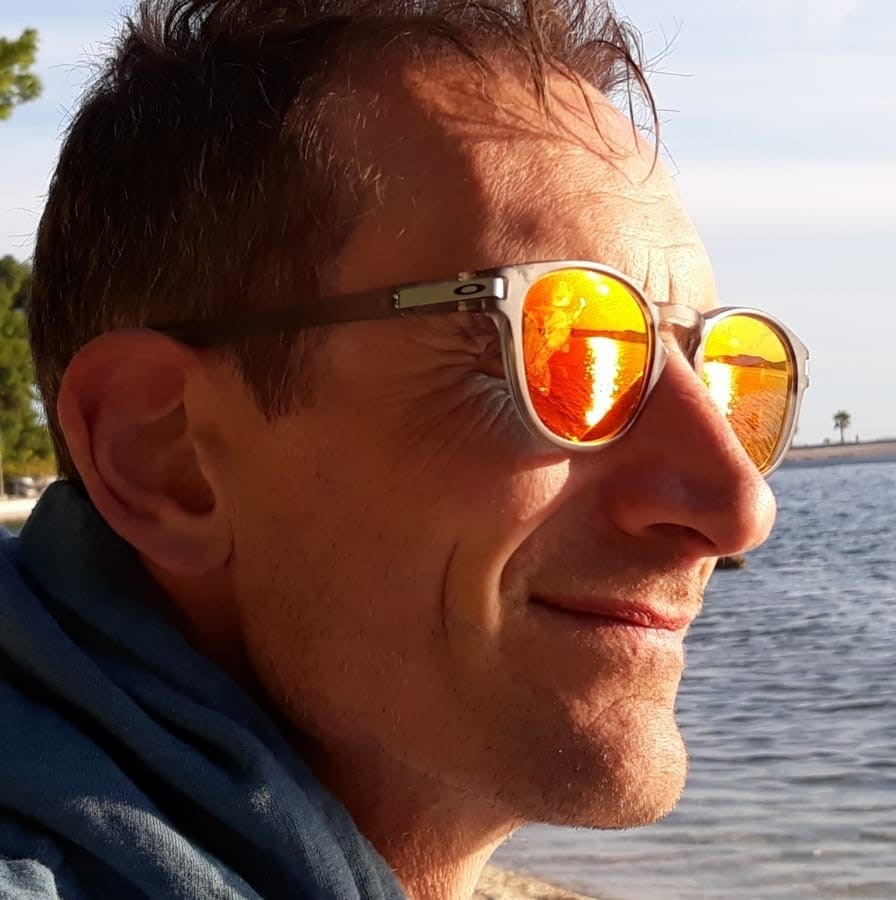
Firstly, how are you? Are you alone/with someone? Tell us a little about your situation and sanity levels.
I was due to go back to Ireland after Easter, however, am now staying on in Split. I am well though, and happy to be with my wife Tamara. Turns out we are having a longer honeymoon than we thought, but no complaints. We have a tenth floor flat so have beautiful views, we go out for a short walk every few days and once a week visit Tamara's mother who lives in Podstrana, just within the travel ambit of Split.
I have been painting and writing and keeping in contact with friends and family.
What do you think about the economic measures the government is taking, are they helping your business?
My wife works in Tourism as a guide and is worried about her financial situation but as far as I understand there is some support coming from the government. She has applied for the ‘Support for Keeping the Working Places Alive scheme.
Back home in Ireland they have offered all people who have been made unemployed the regular unemployment benefit which is €200 a week, quite a lot (Ireland has always had a high social security system though a lot of people fall through the net, and there is much homelessness). Currently there are 7,500 people taking unemployment benefit in Ireland, the country has the same population, roughly, as Croatia. I didn’t apply as I only work part-time in Ireland, helping to manage a café, and I have income still from my other work.
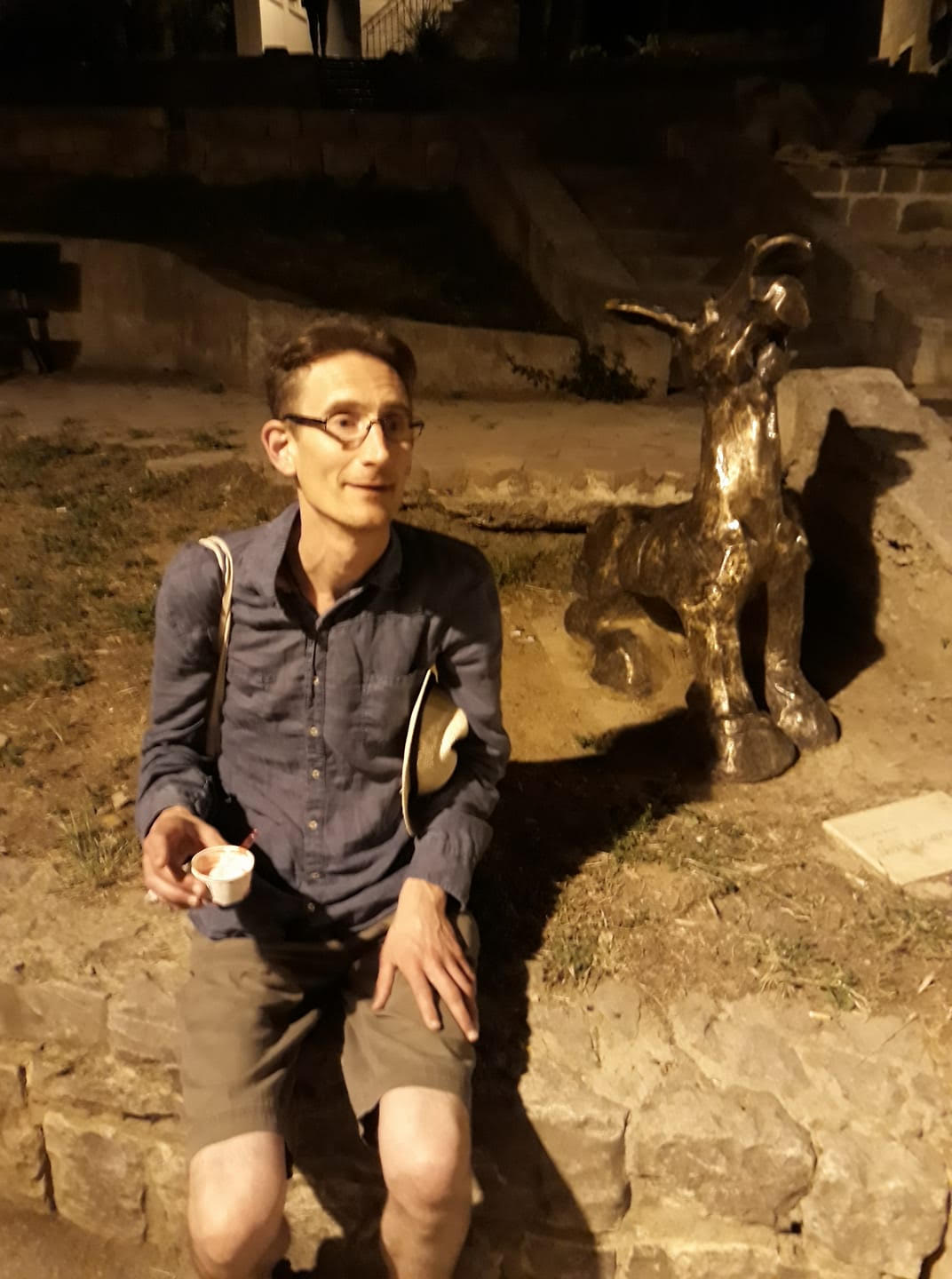
When did you realise that corona was going to be a big issue?
I realised Corona was going to be a big issue when travel restrictions started.
What is your impression of the way Croatia is dealing with the crisis? How safe do you feel?
Croatia is dealing very well with the crisis, I feel. We feel safe.
Now compare that to your home country and how they are handling it. What is Croatia doing better/worse?
Ireland is also doing well. On the whole they are stricter on inclosure in Ireland, people are not allowed to travel out except for shopping and there are guards enforcing this, more than in Croatia, and a strict 2km travel limit from your house (unless food shops are further away). There are more cases though in Ireland than in Croatia, so I do feel that the response here is appropriate. In the UK I feel they reacted too late and have lost control of the situation. My parents are living in London and I worry about them although they are cared for by my brother. Croatia and Ireland were quick to act and trace cases, the UK has been slow at testing, slow at containing group activities and is now unable to trace cases as there are so many.
Official communications from the authorities in Croatia seem to come through the news, I get emails from my local council in Ireland which helps.

What's the one thing you wish you had taken with you into self-isolation?
I have nearly everything. Only miss some sandpaper for burnishing clay on Icons!
What is one thing you have learned about yourself, and one thing you have learned about others during this crisis?
I have learned I am happy to stay at home, and enjoy Zoom activities (which I had never done before!). Now we have Zoom liturgy, yoga, tai chi, meditation courses....
My feeling is that people are more sensible than I thought and are generally co-operating with health directives, and are caring about each other. And are learning how connected we are with people all over the world.
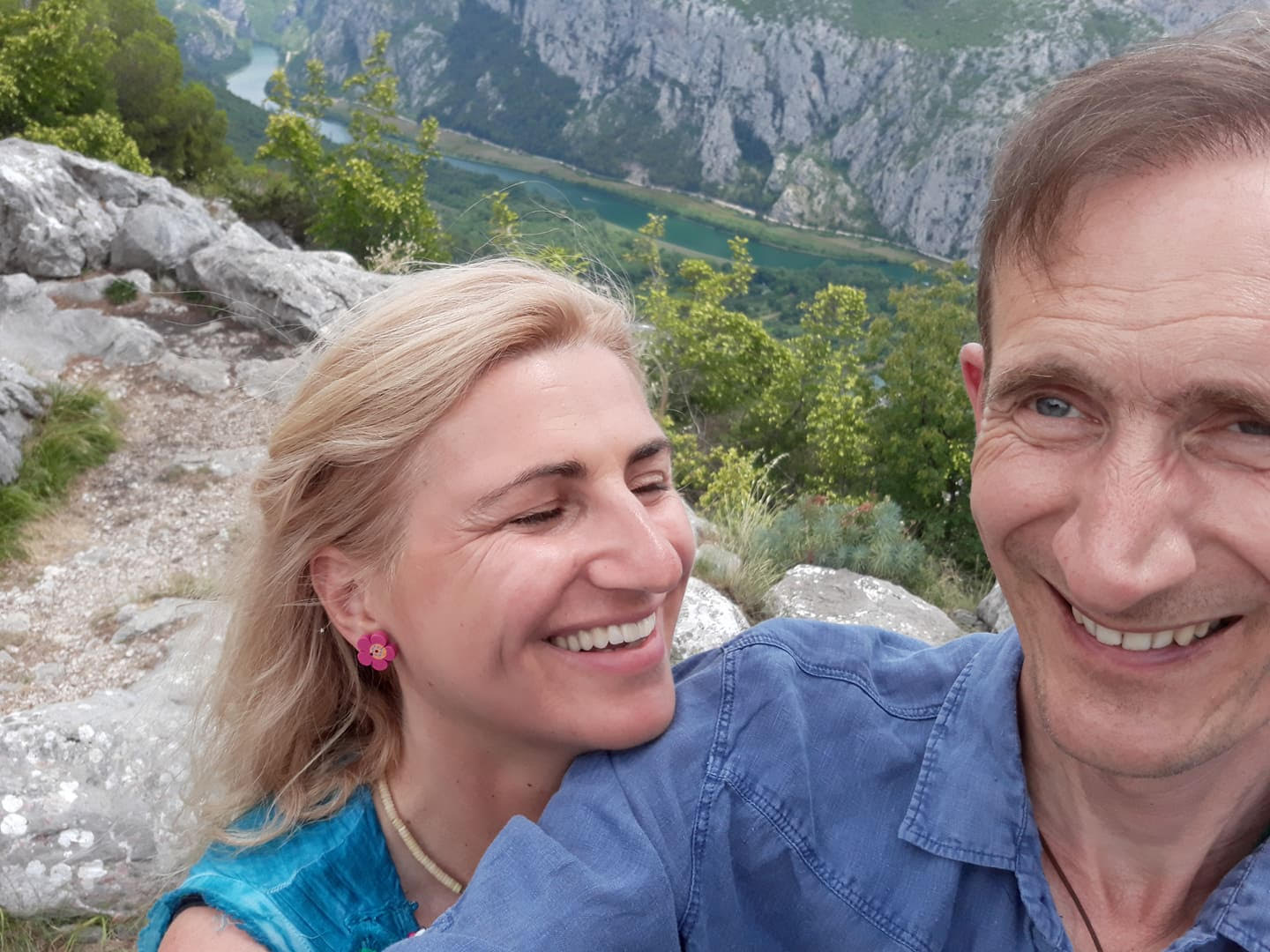
Thanks, Stefan. Stay safe and see you on the other side. You can connect with Stefan via his very interesting Facebook page, Icons, Books, Talks.
TCN is starting a new feature series on foreign experiences of sitting out COVID-19 here in Croatia compared to their home country. If you would like to contribute, the questions are below. Please also include a para about yourself and where you are from, and a link to your website if you would like. Please also send 3-4 photos minimum to This email address is being protected from spambots. You need JavaScript enabled to view it. Subject Corona Foreigner
If you would be interested to record a video version for our partners www.rplus.video please let us know in the email. Thanks and stay safe.
Foreigners Self-Isolating in Croatia: Do You Feel Safer Than in Your Home Country?
Firstly, how are you? Are you alone/with someone? Tell us a little about your situation and sanity levels.
What do you think about the economic measures the government is taking, are they helping your business? (PLEASE IGNORE IF THIS DOES NOT AFFECT YOU)
When did you realise that corona was going to be a big issue?
What is your impression of the way Croatia is dealing with the crisis? How safe do you feel?
Now compare that to your home country and how they are handling it. What is Croatia doing better/worse?
What about official communications from the authorities, compared to your home country?
What's the one thing you wish you had taken with you into self-isolation.
One thing you have learned about yourself, and one thing you have learned about others during this crisis.
TCN has recently become a partner in Robert Tomic Zuber's new R+ video channel, initially telling stories about corona experiences. You can see the first TCN contribution from this morning, my video from Jelsa talking about the realities of running a news portal in the corona era below. If you would like to also submit a video interview, please find Robert's guidelines below
VIDEO RECORDING GUIDE
The video footage should be recorded so that the cell phone is turned horizontally (landscape mode).
There are several rules for television and video news:- length is not a virtue- a picture speaks more than a thousand words
In short, this would mean that your story should not last more than 90 seconds and that everything you say in the report should be shown by video (for example, if you talk about empty streets, we should see those empty streets, etc.).
How to do it with your cell phone? First, use a selfie camera to record yourself telling your story for about a minute and a half. Ideally, it would be taken in the exterior, except in situations where you are reporting on things in the interior (quarantine, hospital, self-isolation, etc.). Also, when shooting, move freely, make sure everything is not static.
After you have recorded your report, you should capture footage that will tell your story with a picture, such as an earlier example with empty streets.
One of the basic rules of TV journalism is that the story is told in the same way as a journalist with his text. Therefore, we ask you for additional effort. Because we work in a very specific situation, sometimes you may not be able to capture footage for each sentence of the report. In this case, record the details on the streets: people walking, the main features of the city where you live, inscriptions on the windows related to the virus, etc.
The same rules apply if you are shooting a story from your apartment, self-isolation, quarantine. We also need you to capture footage that describes your story.
When shooting frames to cover your reports, it is important that you change the angle of the shot (in other words, shoot that empty street from several angles). Also, when shooting a detail, count at least five seconds before removing the camera to another detail.
The material should be about 5 minutes long (90 seconds of your report + frames to cover your story).
After recording everything, send us to Zagreb, preferably via WeTransfer to This email address is being protected from spambots. You need JavaScript enabled to view it.
Wash your hands.
Croatia Launches Andrija, First COVID-19 Digital Assistant
ZAGREB, April 14, 2020 - Croatia on Tuesday unveiled its first digital assistant to advise people how to diagnose and manage suspected COVID-19 infections.
This "virtual doctor", powered by artificial intelligence, has been developed by Croatian IT companies in cooperation with epidemiologists, including doctor Branko Kolaric, who said at the presentation that by developing the new COVID-19 service, Croatia followed the examples of South Korea and Singapore.
The digital assistant is available at https://andrija.ai/ and can be activated on WhatsApp under the name Andrija.
The digital assistant "Andrija" is named after Andrija Štampar, a distinguished Croatian doctor and scholar in the field of social medicine. From 1931 to 1933, Štampar worked as an expert of the Health Organization of the League of Nations. He also spent time in China, from 1933 to 1936, after the Health Organization sent him as an advisor to help the Chinese health administration in the control of mass infectious diseases that appeared after devastating floods in 1931.
Prime Minister Andrej Plenković's chief-of-staff Zvonimir Frka-Petešić said that the online health self-assessment tool was available to all Croatian smart phone users.
Kolarić said that the digital assistant was very helpful to the healthcare system as it could process tens of thousands of requests on a daily basis, while doctors can handle some 50 calls a day.
Public Administration Minster Ivan Malenica said that the digital assistant was a voluntary and anonymous application.
The companies that have participated in the development of the application are Mindsmiths, Neos, Oracle Croatia and Infobip, members of the CroAI artificial intelligence association.
The government praised the companies for working free of charge on this project, aimed at combating the spread of the coronavirus.
Mislav Malenica, the founder of the Mindsmith company, said that Croatia was a step ahead of other countries by having developed the digital assistant that provides users with personalised health advice and guidance.
More coronavirus news can be found in the Lifestyle section.
Glas Poduzetnika Surveys: Using the Croatian Government's Economic Measures
April 14, 2020 - So what do Croatia's entrepreneurs think about using the Government's new economic measures? Some Glas Poduzetnika surveys.
In the surveys conducted while the new set of measures still hasn't been adopted, we received information that just under 7% of entrepreneurs were using the initially proposed measures and that around 70% of them were waiting for a better set of measures.
Taking into account that after the first undertaken initiatives of Glas Poduzetnika that came to the realization, we also collected the new data on the use of economic measures. The first question was, "Do you use any of the Government's measures?" The results show significant changes:
Almost 69% of entrepreneurs use some of the recently adopted measures, with another 8% planning to start using them, and an additional 3% who will apply for their use once they meet the conditions. Interestingly, 20% of entrepreneurs did not use or do not intend to use any measures.
Using the Croatian Government's measures
Yes, I do
No, but I plan to
No, and I don't intend to
Conditions were not met, but planning to
These results are quite positive and positively reflect the greater effectiveness of the new measures. We were also interested in, among those who use measures, what measures precisely do they use? We got the following results:
60% of participants use both wage subsidies and tax liabilities deferral, 31% use only wage subsidies, and only 6% exclusively use tax liabilities and charges deferral.
Given all the collected data, the Glas Poduzetnika Association believes that the measures that were requested and subsequently implemented are well-chosen and produce results at this stage. Of course, we should be aware that these are only emergency measures to put out fires and that for the longer-term prosperity of the economy, many other things will need to be changed, which the Association will also advocate.
Measure usage?
Wage subsidies + tax liabilities and civil charges deferral
Wage subsidies
Tax liabilities and civil charges deferral
Other
You can follow the Voices of Entrepreneurs Association on Facebook.
Corona Voices in the Croatian Diaspora: Tanja from Zagreb in London
April 13, 2020 - With as many Croatians living abroad as in the Homeland, what are the diaspora experiences of self-isolation? In the 7th of a new series, Corona Voices in the Croatian Diaspora, here is entrepreneur Tanja Dzido in London and originally from Zagreb.
Last week TCN started a feature series called Foreigner Self-Isolation In Croatia: Do You Feel Safer? I can honestly say we have never had such a response or so many incredible contributions. The countries of origin of these expats in Croatia literally from all over the world. So far we have had submissions from expats from Romania, USA, Ireland, UK, Mexico, Argentina, Spain, Singapore, Holland, Canada, India, Hong Kong, Venezuela, Latvia, China, Honduras, Hungary, Moldova, New Zealand, Japan and Germany. You can see all their stories here.
Given the success of the series (still going strong) and large interest, it made sense to expand it to look at this from another angle - how Croatians abroad are coping where they are. If you would like to contribute your story to Corona Voices in the Croatian Diaspora, please find the submission guidelines below. Next up, entrepreneur Tanja Dzido in London and originally from Zagreb.
Hello, my name is Tanja Dzido. I'm an entrepreneur from Croatia, the founder of Shhhefica.com and organizer of The Art of Feminine Leadership conference in Zagreb. I was named Female Role Model of the Year at the Central European StartUp Awards, and i am also the author of the succesful book "Budi Shhhefica svog života". In January this year I moved to London to expand my digital marketing business, but also to continue working on women empowerment initiatives and bring the most influential women leaders to Croatia.

Firstly, how are you? Are you alone/with someone? Tell us a little about your situation and sanity levels.
I'm doing surprisingly well but to be honest, it's not easy at all at times. I live alone and don't have many friends here as I've moved to London just in January this year. I was really excited about this life change and had a really good start. I was attending a lot of networking events, meeting a lot of new people, getting new clients and expanding my business. Then suddenly, all of this happened and I'm confined to four walls throughout the day. But I'm still blessed that I'm healthy and my family is safe.
When did you realise that corona was going to be a big issue?
I was following the situation in China and expected Europe to be hit, but not as soon and as much as it is now. Even when Italy went into lockdown, I was still hopeful that a cure or vaccine would surface before it spreads to other countries. I'm still shocked how everything has changed overnight and somehow feel I'm living in this odd dream from which I hope I will wake up soon.
When did you realise that corona was going to be a big issue in London in particular?
When London went into lockdown and all my clients started cancelling contracts. The UK resisted implementing this strategy for a while and when it finally did, I was then sure, the situation was really really bad. And then when the PM was in intensive care, it showed us how serious the situation is, no matter what your position, education, social or political circle you belong. We're all in this together.
Give us a timeline on when and how life changed.
Everything was perfect before the lockdown began. We were all aware of the virus but not aware of how serious it was. I was getting new clients in London and even rented office space starting from March. And then 10 days later this all started, bringing me back to the beginning. All my clients here were impacted and had to shut down so I've lost a significant amount of monthly income. Luckily, I still work for clients in Croatia which helps me to keep my head aboor water.
Tell us about your day. Do you/can you leave your apartment?
We're allowed to leave our homes once per day for daily exercise or grocery shopping. To be honest, I'm avoiding leaving the house because the energy outside is really heavy, so I leave my flat once or twice a week for grocery shopping and I try to structure my day so I have a good balance of work, personal time and video chats with my friends and family.
How are the authorities doing at handling the situation?
I live in central London and I've noticed the police here patrolling but not as much as it should. People are still walking around like nothing's going on, especially young people who think they're immune to it. I believe we should have much stricter measures and police to have more authority. Currently they're much more advisory than commanding, and nobody is taking them seriously.
You obviously keep an eye on your homeland. What is your impression of the way Croatia is dealing with the crisis?
Croatia went into lockdown much faster than the UK, and I believe it bought them time to deal with this situation better. I think they are handling the safety measures very well but I'm very disappointed with the economic measures and how Croatia has been treating its entrepreneurs. There hasn't been much done to provide support and guidance to businesses impacted with this situation.
Compare and contrast the responses of Croatia and the UK. Who is doing what better?
Croatia is handling the crisis better regarding public awareness and making sure everybody is following the safety guidelines. The UK is much more „laid back“ in that approach and there are a lot of people here who are taking this time as a personal vacation to go to the beach, eat and drink with friends. On the other hand, the UK has presented outstanding economic measures, both for businesses and employees and it showed that we're valuable to this economy and well protected.
What about official communications from the authorities, compared to your home country?
I believe the UK is much more advisory in its approach, acting like older brother concerned for its siblings. Looking from a communication standpoint, they have been handling this situation very well, with daily live press conferences and consistent updates on measures. But in a country as big and as diverse as the UK is, I believe the authorities need to be much firmer and stricter to make sure people follow rules. In that, I would say, Croatia is doing a much better job.
What's the one thing you wish you had taken with you into self-isolation?
I think we're all blessed to have a stable internet connection in this situation. It helps us to stay in touch with our loved ones, gives us the opportunity to work and make the best out of all the digital content, as well as following the news from around the world. But having a furry friend would be perfect in this situation. I've always loved dogs but I never had enough time to dedicate them the love and attention they deserve. Now I've got plenty of time for that.
One thing you have learned about yourself, and one thing you have learned about others during this crisis.
I've learned that I can manage self-isolation surprisingly well. Before all this happened, I couldn't imagine myself staying in for a weekend, let alone for a month. I'm a very outgoing person and usually have a busy social life. This situation, as challenging as it is, gave me a different perspective of what it means of having real connections with people, much deeper, not wider. I've learned people are much more compassionate and understanding in times of crisis. I hope we can all take our learnings back into the „normal world“ and make it a better one when this all ends.
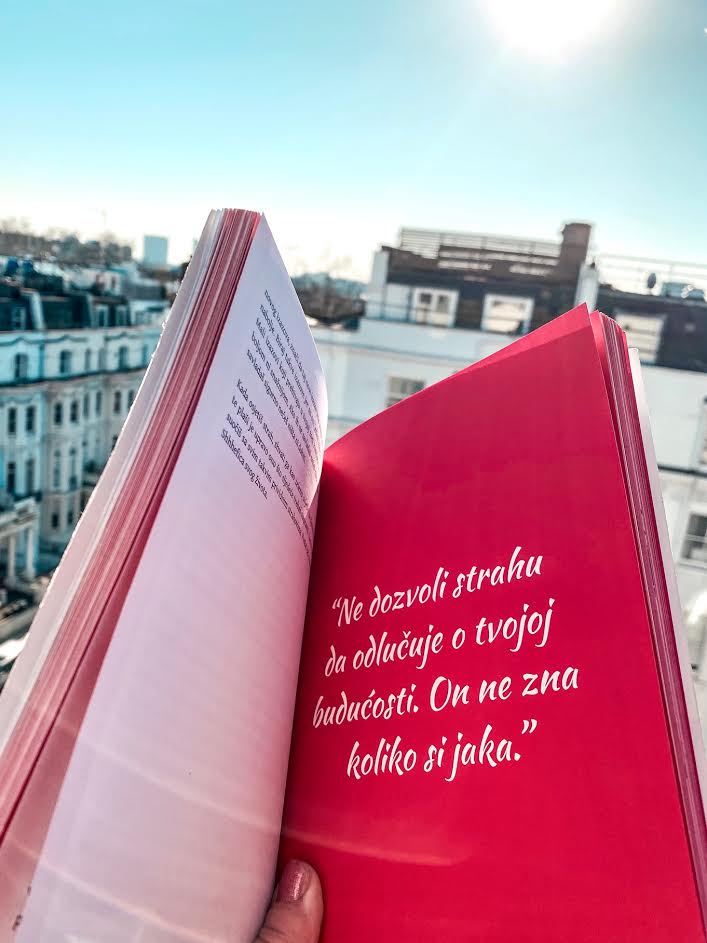
If you could be self-isolating in Croatia, where would it be, and why?
It would be in Zagreb, where I've spent the last 10 years of my life and where I have a lot of amazing friends. Actually, just a week before the lockdown, I was in Zagreb for a few days. I went back to London on Saturday and on Monday the lockdown began.
I don't regret flying back to London and being here for the lockdown. I actually live in one of the most beautiful places in the world, Notting Hill, especially beautiful in springtime. So I can at least enjoy my daily walks and daydream about this all coming to an end.
Thanks, Tanja. Stay safe and see you on the other side. You can see all the stories in both this diaspora series, and the one on expats in Croatia on this link.
TCN is starting a new feature series on Croatian diaspora experiences of sitting out COVID-19 abroad and comparing your experiences to the situation in Croatia. If you would like to contribute, the questions are below. Please also include a para about yourself and where you are from, and a link to your website if you would like. Please also send 3-4 photos minimum to This email address is being protected from spambots. You need JavaScript enabled to view it. Subject Corona Diaspora
If you would be interested to record a video version for our partners www.rplus.video please let us know in the email. Thanks and stay safe.
Self-Isolation Voices from the Diaspora
Firstly, how are you? Are you alone/with someone? Tell us a little about your situation and sanity levels.
When did you realise that corona was going to be a big issue?
When did you realise that corona was going to be a big issue in New York in particular?
Give us a timeline on when and how life changed.
Tell us about your day. Do you/can you leave your apartment?
How are the authorities doing at handling the situation?
You obviously keep an eye on your homeland. What is your impression of the way Croatia is dealing with the crisis?
Compare and contrast the responses of Croatia and USA. Who is doing what better?
What about official communications from the authorities, compared to your home country?
What's the one thing you wish you had taken with you into self-isolation?
One thing you have learned about yourself, and one thing you have learned about others during this crisis.
If you could be self-isolating in Croatia, where would it be, and why?
TCN has recently become a partner in Robert Tomic Zuber's new R+ video channel, initially telling stories about corona experiences. You can see the first TCN contribution from this morning, my video from Jelsa talking about the realities of running a news portal in the corona era below. If you would like to also submit a video interview, please find Robert's guidelines below
VIDEO RECORDING GUIDE
The video footage should be recorded so that the cell phone is turned horizontally (landscape mode).
There are several rules for television and video news:- length is not a virtue- a picture speaks more than a thousand words
In short, this would mean that your story should not last more than 90 seconds and that everything you say in the report should be shown by video (for example, if you talk about empty streets, we should see those empty streets, etc.).
How to do it with your cell phone? First, use a selfie camera to record yourself telling your story for about a minute and a half. Ideally, it would be taken in the exterior, except in situations where you are reporting on things in the interior (quarantine, hospital, self-isolation, etc.). Also, when shooting, move freely, make sure everything is not static.
After you have recorded your report, you should capture footage that will tell your story with a picture, such as an earlier example with empty streets.
One of the basic rules of TV journalism is that the story is told in the same way as a journalist with his text. Therefore, we ask you for additional effort. Because we work in a very specific situation, sometimes you may not be able to capture footage for each sentence of the report. In this case, record the details on the streets: people walking, the main features of the city where you live, inscriptions on the windows related to the virus, etc.
The same rules apply if you are shooting a story from your apartment, self-isolation, quarantine. We also need you to capture footage that describes your story.
When shooting frames to cover your reports, it is important that you change the angle of the shot (in other words, shoot that empty street from several angles). Also, when shooting a detail, count at least five seconds before removing the camera to another detail.
The material should be about 5 minutes long (90 seconds of your report + frames to cover your story).
After recording everything, send us to Zagreb, preferably via WeTransfer to This email address is being protected from spambots. You need JavaScript enabled to view it.
Coronavirus Economy: Zagreb Company Begins Producing Disinfectants
As Darko Bicak/Poslovni Dnevnik writes on the 13th of April, 2020, at its facility in Zagreb, Kemoplastika is now busy "assembling" a highly sought-after item. Due to its microbicidal action, the product has a very strong disinfectant effect and successfully reduces the number of microorganisms from surfaces. The product was manufactured at their Zagreb facility and is doing well as the coronavirus crisis takes chunks out of the economy.
Disinfectants have become one of the most sought-after items on the market, both in Croatia and in Europe and indeed across the world.
Although not a particularly demanding technological process is involved when it comes to its production, as it is mainly alcohol-based, due to their relatively low added value, many chemical, pharmaceutical and petrochemical companies have all but abandoned production.
However, as a result of the coronavirus crisis across the world, more and more companies have been able to re-establish or re-produce this item in just a few days. One of them is Zagreb's Kemoplastika.
As explained by Kristijan Strmecki, CEO of Kemoplastika, the Zagreb-based company was established under its existing name back in 1991, but was formed on the basis of a business called VIST, well known in the 1980s. The company's founders are Viktor and Kristijan Strmecki.
''Back at the beginning of the business, it was solely related to manufacturing, with the aim of later expansion into retail, import and wholesale. So, we've grown from a small manufactory to a modern facility with professional employees,'' Strmecki recalls. He added that the idea of producing their own disinfectants came naturally amid the coronavirus pandemic, when the scale and parameters of the ongoing health crisis and the assumptions of its duration were revealed.
''It wasn't really difficult for us to ''assemble'' the product, because what our company became famous for is just that - our own products. We had no problems with the technology and the raw materials, because in our company, we create an environment that motivates our workers to be creative and efficient. We respond quickly to the market and adapt to the wishes and needs of our customers. Listening to the needs of the market, we're constantly updating our offer with new products. We stand out for our speed of delivery and our flexibility,'' says Kristijan Strmecki.
Earlier on, almost all chemical and petrochemical industries, whether they were Croatian companies with 2-3 employees or multinational corporations such as INA, had started producing disinfectants for the market. INA Maziva announced that in just a few days, they had completed the technological process required and produced a deeply desired product, putting it onto the market - INA Dezinol - and the product was approved by the Ministry of Health.
Given the current situation with the coronavirus epidemic, the company will donate some of its products to the Civil Protection Headquarters of the Republic of Croatia. As explained by Zoran Skrobonja, CEO of INA Maziva, Dezinol was primarily developed for the company's internal needs, for the disinfection of surfaces at retail locations and so on.
Pharmaceutical giant Pliva has also been a significant manufacturer of professional medical disinfectants in the past, with director Michael Furjan pointing out that they have increased their capacity in this segment three times, but that this still hasn't been enough, as market demand has increased by twenty times since the coronavirus pandemic began gaining traction.
Make sure to follow our dedicated section for all you need to know about coronavirus in Croatia. For more Croatian innovation, follow Made in Croatia.
Croatian Islanders Can Now Apply for Island Cards Through E-Citizens System
As Morski writes on the 13th of April, 2020, the Coastal Shipping Agency would like to inform Croatian islanders that they can apply for an island card (otocna iskaznica) through the e-Citizens system, which has grown in popularity ever since the coronavirus crisis struck, making a digital Croatia a reality much sooner than the powers that be would have us believe was possible.
The electronic island card application service for Croatian islanders is available via this link and on the official website of the Coastal Shipping Agency. The service will also be accessible directly through the e-Citizens portal upon selecting a service from the transport and vehicles category.
Users, more specifically Croatian islanders, will be able to apply for their island cards for a person or for a vehicle electronically, and will be informed via the e-Citizens platform about the status of their respective applications.
To successfully process an application when it is completed online, a payment must be made to the state for the issuance of the island card (65 kuna for the issuance of an island card for a person and 80 kuna for the issuance of a card for a vehicle) as well as a scanned photo for a personal document (dimension 35mmX45mm) in the case of an application for an island ID card for a person.
The completed and valid island card will then be delivered to Croatian islanders at the post office of their own choice, which they must make clear at the time of their initial application, and within twenty days from the date of approval of the request.
Requests will can still be made at the post offices listed here.
For technical support or if you need to report a problem, users can contact the contact telephone number: 0800 0440 (contact centre opening hours: Mon-Fri from 08:00-16:00) or by email: This email address is being protected from spambots. You need JavaScript enabled to view it..
Make sure to follow our dedicated coronavirus section for all you need to know about the pandemic in relation to Croatia. For more on travel, follow this page.
Shortages of Two Drugs on Croatian Market due to Coronavirus Pandemic
The coronavirus pandemic is causing issues left right and centre when it comes to health and the economy, which has had to be all but paused, and problems are being experienced in the field of drug availability, too, as exports continue to be affected.
As Poslovni Dnevnik writes on the 13th of April, 2020, the Croatian drug market is far from immune from the coronavirus epidemic, and there has been a shortage of two medicines containing paracetamol and one other drug containing lopinavir/ritonavir for the treatment of HIV reported, according to a report from Vecernji list.
According to the Croatian Agency for Medicinal Products and Medical Devices, HALMED, these shortages of these particular medicines are not currently considered critical in the Republic of Croatia, since other medicines with the same active substances continue to remain available on the Croatian market. This shortage is due to a restriction on exports from India and the active substances of medicines wholly imported from China.
''In line with the evolution of the [coronavirus] epidemiological situation, HALMED is continuously collecting data and conducting analyses of the impact of the pandemic and epidemic spread of COVID-19 on the supply of drugs to the Croatian market.
We would also like to mention that we are in constant contact with the regulatory authorities of other EU member states and the marketing authorisation holders whose medicinal products are placed on the market of the Republic of Croatia in order, if necessary, to take the measures needed to ensure the adequate supply of the Croatian market,'' HALMED stated.
Make sure to follow our dedicated section for rolling information and updates on coronavirus in Croatia.
13 Persons Who Carried Inappropriate Banner in Split Suburb Identified
ZAGREB, April 14, 2020 - Charges have been pressed against four persons for attacking journalists in Split on Sunday, and 13 persons who carried an inappropriate banner have been identified, Interior Minister Davor Božinović said in an interview with the public broadcaster HRT on Monday evening.
A female journalist and a camerawoman were attacked outside a parish church in the Sirobuja suburb of Split on Sunday where a Mass was held despite the ban on public gatherings over the coronavirus epidemic. Criminal charges have been brought against three persons for using violence against persons performing a public duty, which carries a maximum prison sentence of five years, while one person faces misdemeanour charges for disturbing the peace.
Police have also identified 13 persons, including a minor, who subsequently gathered outside the church and displayed unacceptable behaviour and insignia, Božinović said. Two of them will be prosecuted under the Public Order Act, one under the Explosive Substances Act for setting off a flare, while the rest will be reported to the State Inspectorate for violating the measures imposed by the national civil protection authority as part of efforts to curb the coronavirus epidemic.
"There will be no concessions made, especially when it comes to officials and journalists, who are actually one of the most important links in the chain of defence against the coronavirus. Without them everything that the civil protection authority says would not reach the citizens, and we can see that a vast majority of citizens adhere to these measures to protect themselves and others," the minister said.
Asked about a possible relaxation of the emergency measures, Božinović said that there were still a lot of unknowns about this novel virus and that it was difficult to predict when the measures would be eased. He said that the number of infections would need to fall for five to seven days, while this number in Croatia was still fluctuating. He said that it was not yet time to lift the restrictions.
"We discuss this every day, and this is not an arbitrary decision of the government and the civil protection authority. If we all make our contribution and behave in accordance with the epidemiological measures, we will sooner reach a point where it will be possible to relax some of the measures," Božinović said.
He said that 23 police officers were currently infected with the virus, 210 had completed self-isolation and 123 were still in self-isolation.
More coronavirus news can be found in the Lifestyle section.
Krunoslav Capak on Loosening Measures in Croatia, and When
April 14, 2020 - Head of the Croatian Institute for Public Health and a member of the National Civil Protection Headquarters, Krunoslav Capak, spoke about loosening measures in Croatia and when.
Like much rest of the world, Croatia has been living with special measures because of the coronavirus pandemic. It seems, however, that the epidemiological situation in Croatia is quite good, so the question arises when the rules will be lifted, or at least loosened.
We've already heard the news in Austria, which first announced that it was phasing out of the measures in place, as is Slovenia, Germany, but also Italy and Spain, the two countries most affected by the coronavirus in Europe.
Index.hr discussed loosening the measures and the epidemiological situation in Croatia with the head of the Croatian Institute for Public Health and a member of the National Civil Protection Headquarters, Krunoslav Capak.
Capak first commented on the fact that some countries, particularly those that were severely affected by the coronavirus, were already lifting measures.
"This situation cannot last indefinitely, especially in the economy, so that there is no economic collapse because then we have not done anything. The measures can be relaxed, but it must not be as before, special conditions such as distancing must be introduced," Capak said.
He announced that he would consider loosening some measures in Croatia in the next period as well.
"One of those things is public transport. When public transport comes back, social distance measures will be prescribed. But before relaxing measures, such as normalizing public transportation, we think the epidemiological situation must be stabilized so that, God forbid, we don't have a jump in the number of new cases as it happened in Serbia," said Capak.
Capak said that there should be a consecutive number of days without new cases or a drop in new cases, or, more preferably, a drop without sudden leaps. The Head of the National Headquarters and the Minister of Interior, Davor Bozinovic, also gave a concrete time interval. A drop in the number of new cases should occur for five to seven days for them to begin loosening restrictions.
Krunoslav Capak revealed which of the measures represented the least risk and could be loosened in the first wave.
"It will definitely be economically good, good for the recovery of the economy and not a big risk. The business people will also help us a little by telling us which measure will most help the economy without creating chaos in terms of spreading the infection and increasing the number of new cases," Capak explained, noting that the decision to loosen measures, when the time is right, is to be made by the Headquarters.
Capak confirmed that the public transport mentioned earlier could be one of the first measures to be eased.
"We will certainly consider public transportation and think very carefully about how we will do it. Our best people from the Public Health Institute use public transport to get to the lab, and they have no other option than public transportation. Some people just have no other options. We will certainly consider public transport soon, but under stringent conditions," Capak revealed.
He said extending the opening hours of shops, like before Easter from 7 am to 8 pm, is not currently being considered.
"We will stay part-time from 8 am to 5 pm. When we agreed to that, we wanted to make it one shift, that people working in stores rotate and reduce the number of people going to work. I think that it is very important and that it is a successful measure," Capak said.
Was there any feedback at the Headquarters as to whether the shops were organizing one shift?
"According to the information we have, most are. There may have been some shifts, but work is not two shifts, and that was important to us. I think it is very important to reduce the number of people, workers in stores, and customers," he added.
When asked about complaints from those who work from 9 am to 5 pm, who are left with little time to go to the shops, he said that those in the Headquarters understand this best, but that it is still a good and efficient solution.
"Of course, I'm pleased. We considered the scenarios and comparisons with other countries and I always thought we wouldn't have an Italian scenario. We did all the estimates on the number of beds and ventilators according to the Italian scenario, but I always thought it would be a lot milder here. If it were not for this situation in Split, we would have had a much calmer situation with less than 50 new cases a day," Capak said.
Can we expect that the tourist season will begin by the end of July or August?
"It is very difficult to predict. We do not know what will happen in Scandinavia, although it looks promising there, and we do not know what will occur in central Europe. We have a particular advantage here because of the favorable epidemiological situation.
However, the tourist season depends a lot on the situation in the countries from which tourists come to Croatia. We will certainly not allow people from countries where the situation is not good to come. That is why it is tough to predict the tourist season at the moment. I think it would be good to think about attracting local guests," Capak said of the tourist season.
Capak was asked if Croats who were planning holidays could then expect the movement ban within the country to be lifted.
"If it is a favorable situation, why not, we will see how we can ease it. For the time being, we are keeping that measure, but we will surely get there," Krunoslav Capak concluded.
Follow TCN's live updates on the coronavirus crisis in Croatia
Ivan Rakitic Opens Up about Status at Barcelona: "I Will Decide My Future"
April 14, 2020 - Croatia representative and Barcelona midfielder Ivan Rakitic has been training in the safety of his home because of the coronavirus pandemic. The famous footballer opened up to Spanish media about his uncertain future at the Catalan club.
T.portal reports that, like many footballers around the world, Ivan Rakitic spends his days inside the four walls of his home until football returns to the currently-quarantined Spain.
“I am spending this time as we all are, with family, my wife and children. Luckily we have some space in the garden so we can play. We’ve had a little luck and good weather, it's getting a little easier for us,” Rakitic revealed in an interview with RTL on Sunday.
“I have to train as much as I can to be ready because I don't know exactly when we'll be back. I also respect the decision of Bayern and a lot of German clubs who are back and if the situation can allow it, even better. It doesn't look like that for us yet. I think we will be stuck at home for a while, but for the benefit of all of us,” he added.
But in an extensive interview with Mundo Deportivo, in which he received the full cover, Ivan Rakitic spoke about his status at Barcelona, as there has been a lot of speculation about him moving to a new club, from Inter to PSG, Sevilla, and Atletico.
“For two years now, and especially during breaks between seasons and during this forced break because of the coronavirus, I have been writing and talking about my departure from Barcelona. I always responded to this as I will now; playing for Barcelona to me is perfection, the fulfillment of a dream. So I would like to play and enjoy it here until the end of my contract and help win all the trophies. If that is not possible, we will sit down and arrange my departure. However, I want to work with Barcelona until the end.”
If Rakitic has to leave Barcelona, is Sevilla his priority?
“True, I have a special affection for Seville, but above all for the city, as I have my family there. I always said that it would be great to wear that shirt again, everyone knows that, but it is not only my decision that matters, whether I want it or not. There are many more things. Monchi (the sports director of Sevilla) and everyone in Seville has my phone number, they haven't called me yet, and I recently had a birthday, but even then they didn't remember me,” he said laughing.
Rakitic has always said that Barcelona is the best team in the world.
“Everyone who knows me knows I always want to win. My goal is always to win and conquer everything. First, in training, then during the games and the trophies and that will never change. I see myself at my best, and I do my best. If I didn't have that desire, I would do things differently, but I feel better than ever and see that I will compete at the highest level for the next three or four years,”
Barcelona offered Rakitic the chance to leave last summer, but now, because of the coronavirus pandemic, such transfers may no longer be feasible. Does Rakitic see himself as a player in other leagues, such as Italy or England, or would he rather stay in Spain?
“I understand the situation, but I'm not a sack of potatoes that could be traded. You can always talk to me, but most importantly: I want to be where I will be loved, respected and needed and where both myself and my family feel good. If it’s going to be in Barcelona, I’ll be thrilled. If not, I'll go where I choose and not where others want. I do not allow this kind of behavior towards me and I have already told them that is the most important thing.”
To read more about sport in Croatia, follow TCN's dedicated page.

